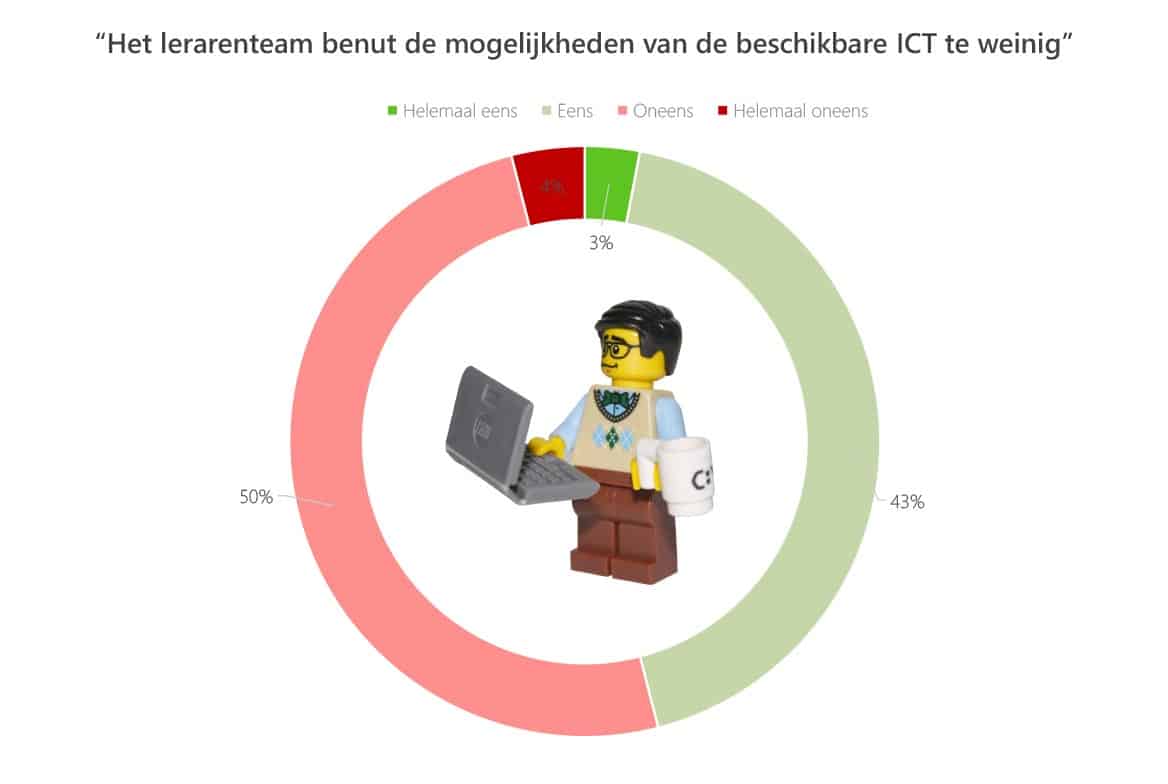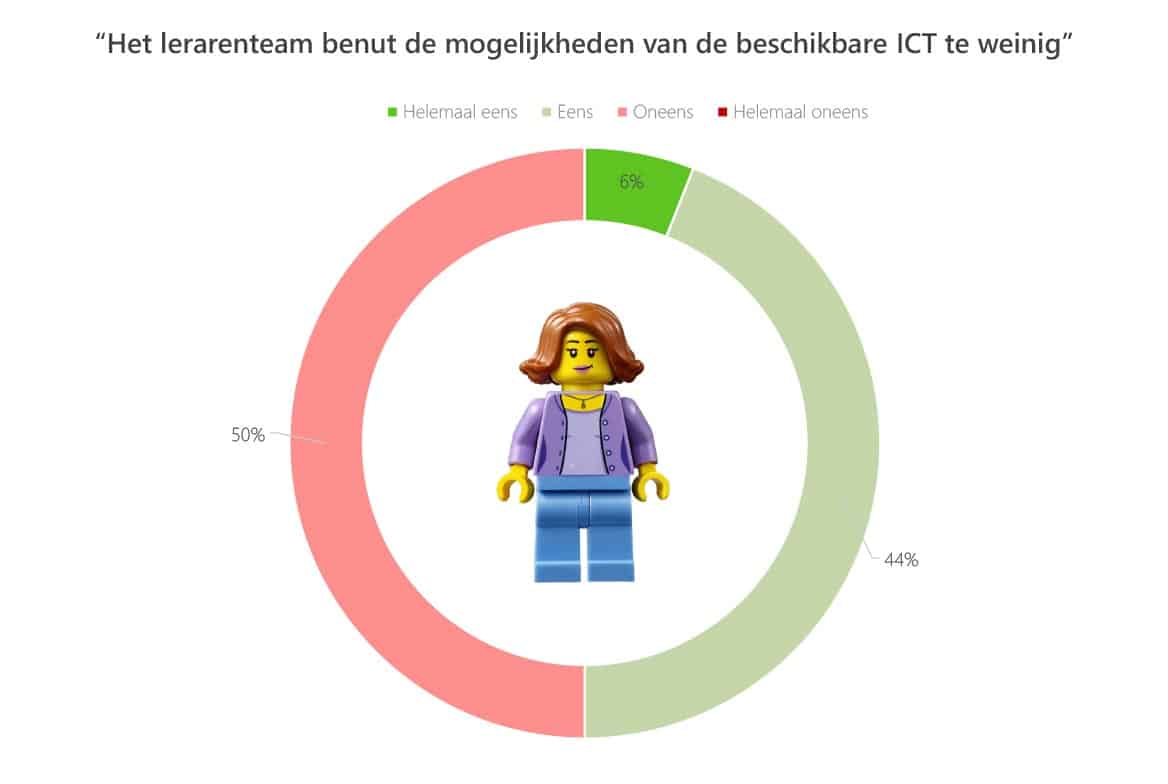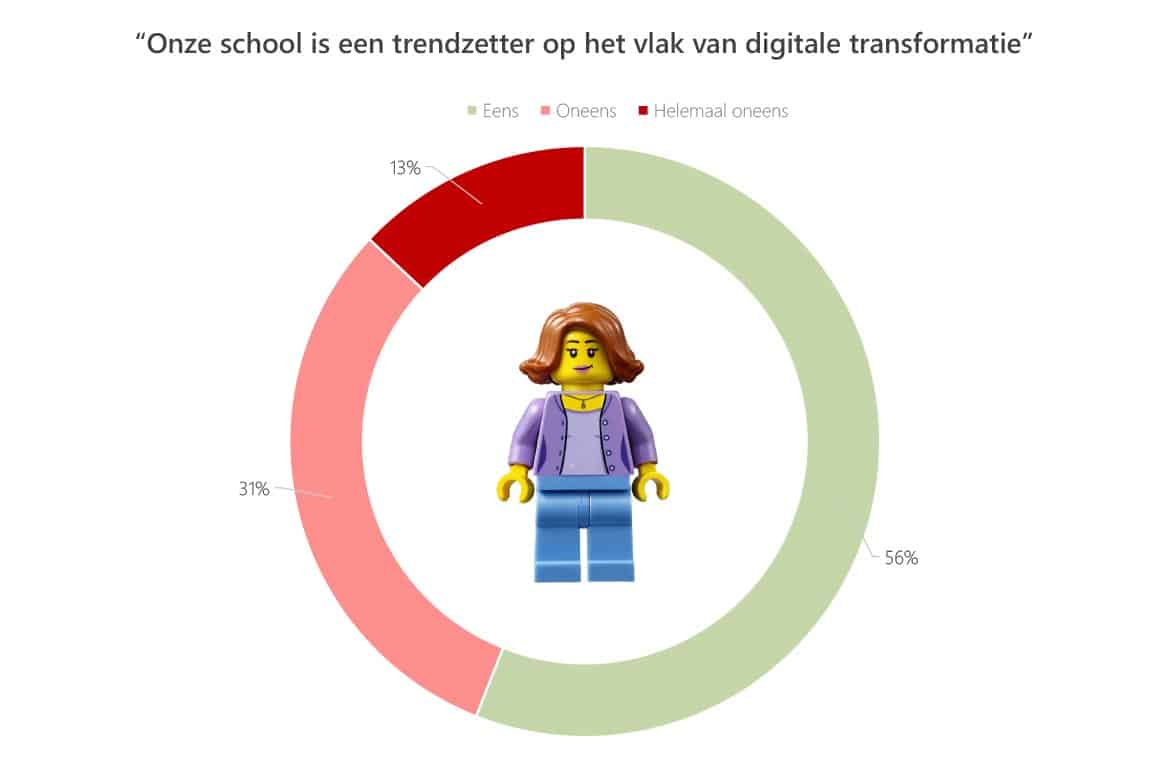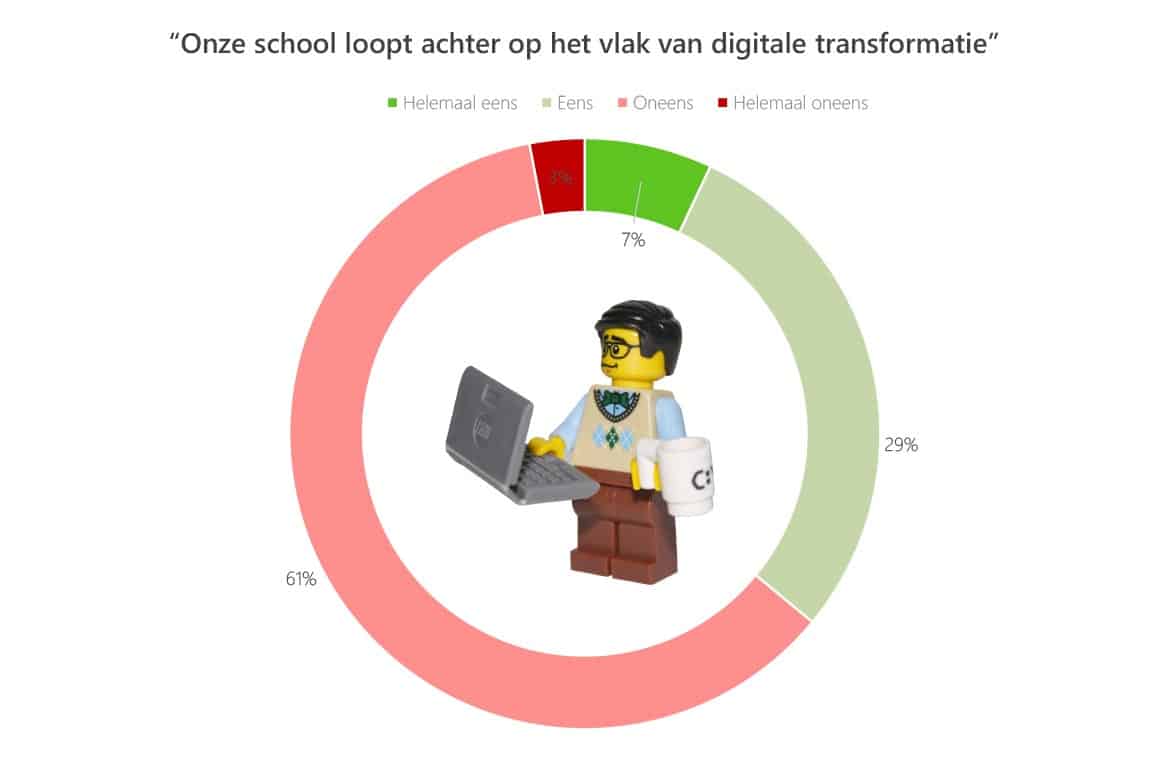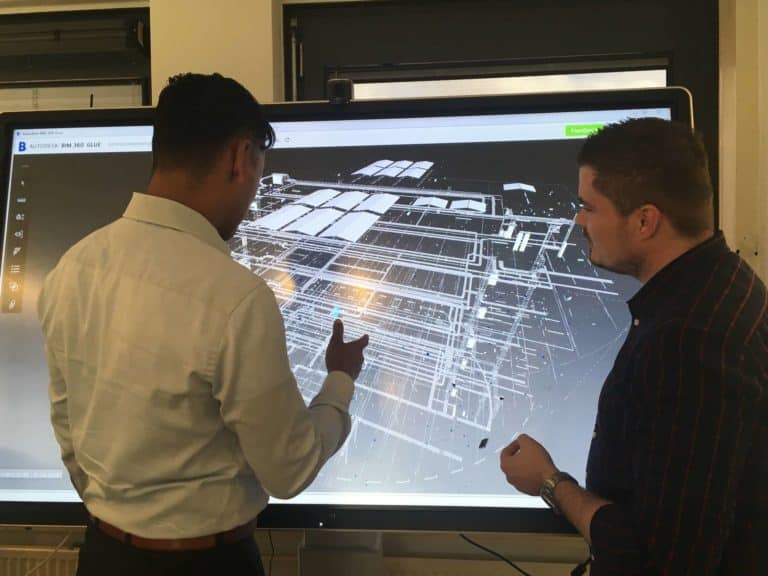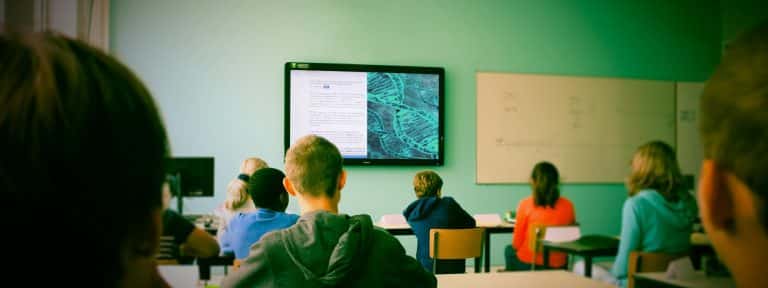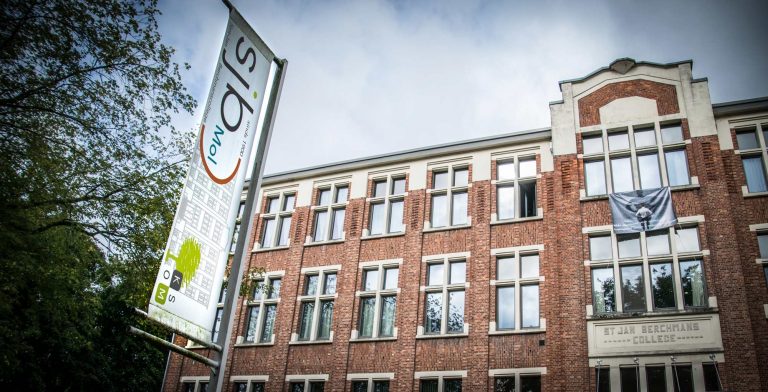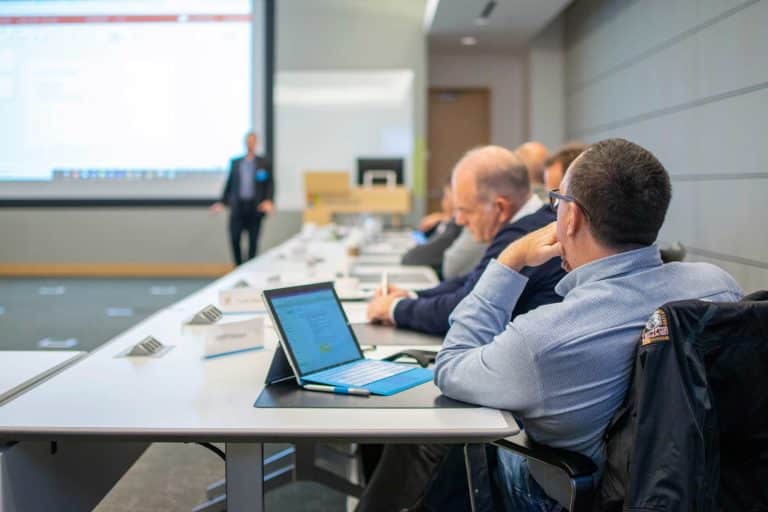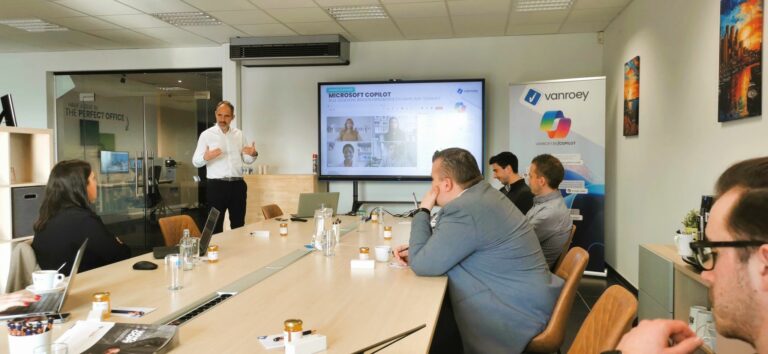Implementing digital tools is one thing, making efficient and optimal use of them is something else. This is also shown by our survey: almost 50% of our respondents (both management and ICT coordinators) indicate that they feel that teachers still make insufficient use of the digital possibilities. Knowledge of the tools undoubtedly plays an important role in this.
Thesis 1: "Does your team of teachers use the digital learning tools?"
What can we conclude from this?
- Both management and ICT coordinators suspect that not all possibilities are yet being used by the teacher.
- What do we think is important?
- Involvement of the teacher team in the implementation of new technologies;
- Offering courses to your teachers to improve their digital skills;
- Transparent communication between management, ICT coordinator and teacher.
Proposition 2: 'Digital transformation in education'.
What do we see?
Despite the fact that the question to the management was formulated differently from that to the ICT coordinators, we still see more or less the same result here:
- The majority of both management and ICT coordinators are satisfied with the digital transformation of their school;
- 44% of the board members indicates that there is room for improvement;
- In the case of the ICT coordinators, 36% refers to a digital backlog.
Certainly this last figure provides food for thought.
That's why we asked them about the possible causes of this backlog:
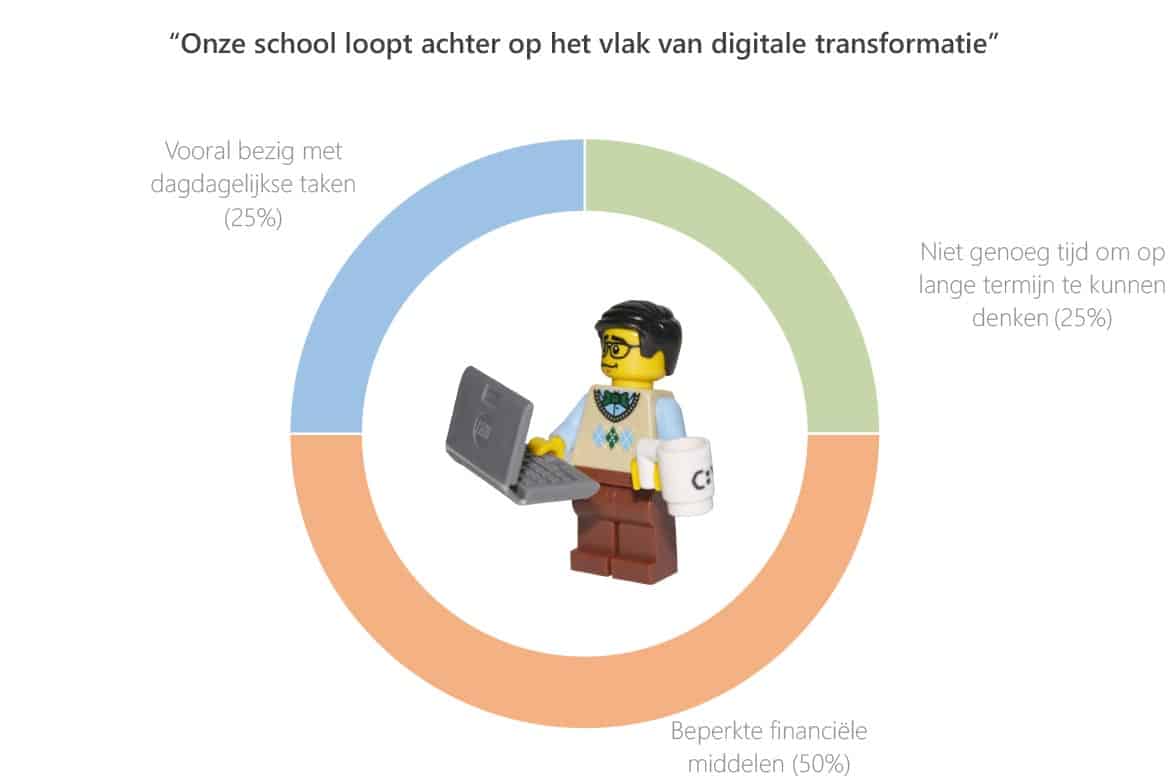
Proposition 3: 'Future investments'.
Every IT infrastructure - especially the computer park - is subject to aging, which is why we asked the respondents what major investments are planned for the next three years. An overview of the results:
- 24% will invest in interactive projectors or touch screens;
- 21% takes the importance of network security into account, with BYOD in mind;
- 17% wants to buy tablets and 12% notebooks;
- 12% wants better wifi and plans to invest in wireless internet;
- 11% does not envisage any major investments (only replacement of defects).
What do we deduce from this?
Schools clearly want to invest in digital learning tools: interactive projectors or touchscreens and notebooks or tablets are high on the wish list. Despite this digital revolution, there are still a few points of attention. Despite the fact that 21% indicates that it wants to invest in network security, the majority of Flemish schools will not do so, despite the fact that education is an important target group for hackers. A disgruntled pupil can cause a lot of damage to the network if it is insufficiently secured (provided that there is some knowledge).
Good news, of course, is the 30 million euros that the Flemish government is releasing to give education a digital boost. It is setting up its own knowledge centre, consisting of a team of four people, who will guide schools in their digital plan.
Proposition 4: 'The future role of the ICT Coordinator'.
Since education is changing, does the ICT coordinator see a change in his or her role?
We asked them the question and got the following answers:
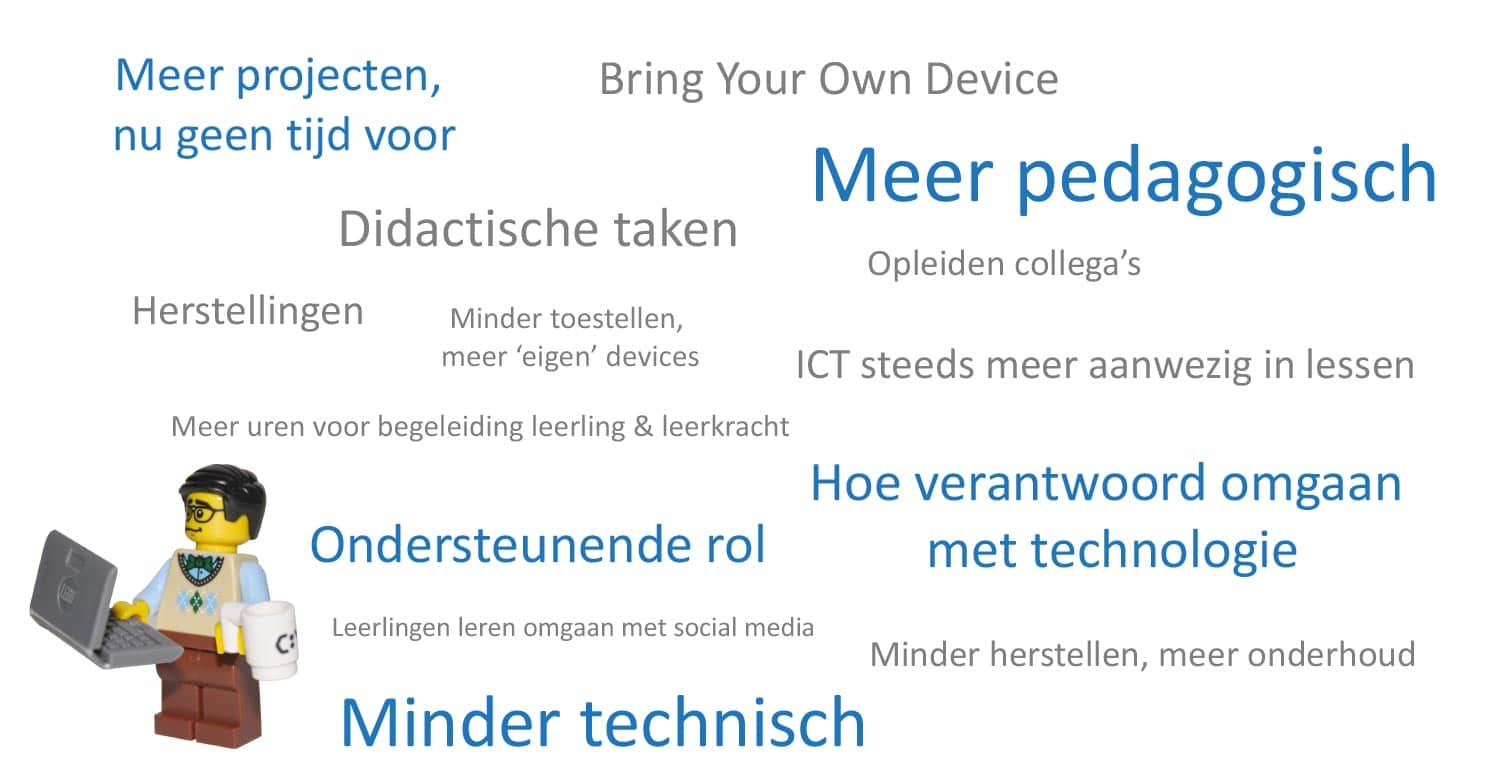
What did we establish?
The ICT coordinator hopes for a more supportive and strategic role in the future; he (or she) wants to work in a more pedagogical way and is less concerned with 'extinguishing fires'. Thinking about future investments and guiding pupils and teachers were often cited as examples, so ICT coordinators consider it important to develop a policy plan for social media. Therefore, bullying no longer only takes place within the school walls.
CONCLUSION
Over the past 5 years, Flemish schools have seen a boost in ICT, with each school striving to provide the necessary digital tools. Classrooms have been transformed into digital classes equipped with Wi-Fi, an IWB, an interactive projector or a touch screen, and the use of Chromebooks, tablets and digital learning tools during or after the lessons is also strongly encouraged, giving teachers the opportunity to closely monitor the learning process of the pupils via a digital learning tracking system.
Less good news: despite the fact that more and more devices are connecting to the school network, only a small percentage of the surveyed schools a investment in security (21%) or better wifi (12%).
vat no.*
